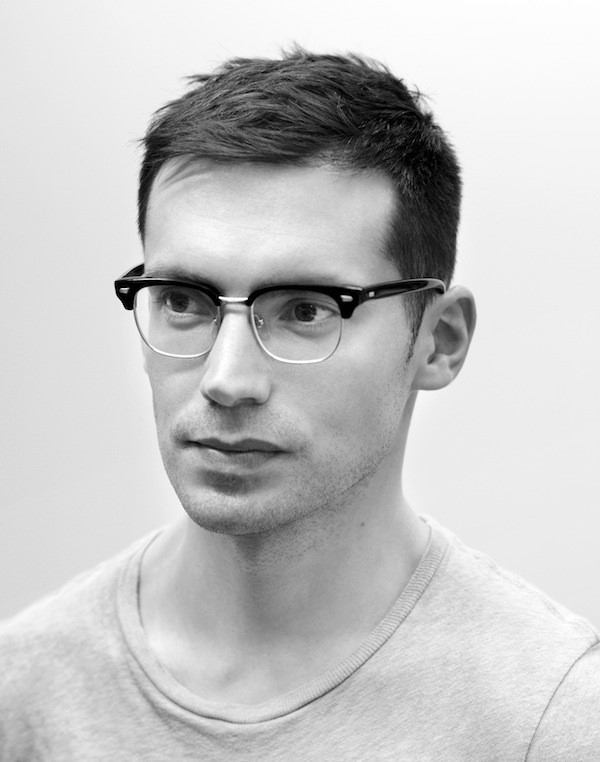Erdem is one of the most acclaimed figures in young contemporary fashion design. Born in Montreal of Turkish and English roots, he studied in Toronto before earning a MA at the Royal College of Art...
Erdem is one of the most acclaimed figures in young contemporary fashion design. Born in Montreal of Turkish and English roots, he studied in Toronto before earning a MA at the Royal College of Art. After working with Vivienne Westwood and Diane von Fursternberg, he created his own line, which has led him to be the recipient of numerous awards, such as the Fashion Fringe Prize, the Swarovski British Fashion Council Fashion Enterprise Award and, most recently, the British Fashion Council/Vogue Designer Fashion Fund. A leading voice in the London creative community, he also collaborated with Cutler & Gross in 2009, to design a collection of sunglasses.
How would you connect fashion to elegance?
Elegance is quite a physical thing: you can see a woman walking down the street who, just, for whatever reason, encompasses something that is elegant. A ballet-dancer is elegant. The way someone moves is elegant. The question is: can fashion make you more elegant? There certainly is something in the way certain garments are constructed, the way certain garments fall on the body, that can almost accentuate the elegance.
What is the role of history and art history in your conception of fashion?
It is a catalyst for my own work, part of my creative process consists of creating a narrative inside of my head. Elements of that inevitably involve looking at history and art history.
"It’s impossible to dismiss fashion as not having a political role"
Would you describe fashion as a language and a discourse, as Barthes did it?
There are two ways of looking at it: there is the idea of creating of show, creating a narrative for people to interpret. You find a visual language for the thoughts you have. When I have a show, I create a body of work for people to look at and interpret. At the same time, it also goes the other way round: when you see someone walking down the street, you can read how they look, in the same way as you look at a building and you have an immediate understanding of whether or not the building is a government building, or a police station, etc. Quite literally, you can read what someone is wearing.
The word "intellectual" was coined in a time of great political distress. Does fashion have a political role? And in which way?
It’s impossible to dismiss fashion as not having a political role. Fashion is an indication of what we look at any given point in time. We can’t escape fashion: we wear it, we live in it. So inevitably it does have a political role. The way Queen Elizabeth I dressed, the way Margaret Thatcher dressed, the way Jackie Onassis dressed in a Chanel suit, the way Marie-Antoinette dresses. All of these things say something.
How would you relate the concept of "fashion" to the one of "style"?
Fashion is something that is designed, created, imagined. Style is something that is instinctual.
"From an early age I think I knew that I would live in London, and that London would be important to my work"
What does fashion have to do with intellectuality ?
Fashion has a lot to do with intellectuality: through fashion, one can identify a specific time, space, and location. Finally, it has to do with intellectuality through the idea of telling a story, of expressing it, of saying something, of having an opinion.
You were born in Montreal, and have Turkish roots. At the same time, you have clearly adopted the codes of British fashion history in your designs. What is the role of identity within the conception of fashion?
I was born in Montreal, my mother was English and my father was Turkish. I grew up in the suburbs of Montreal. Both my parents had this great nostalgia of their origins. I grew up feeling slightly rootless in the the suburbs. And so as a child I spent a lot of time day-dreaming. Watching Merchant Ivory films, watching Tim Blanks on television reviewing all the old Westwood and Galliano shows. Kind of imagining this world that was so far away from me... From an early age I think I knew that I would live in London, and that London would be important to my work.
You are famed for using inspirations, and bringing them to a totally different world. What is the role of fiction inside fashion?
It relates to the idea of creating a narrative in your head, whether it is loosely based on a book, or a place. It always goes through the process of thinking where things are. And it does not mean that they are factually correct, or that I even care if they are factually correct – such as imagining a trip to Japan. I always think that there is this woman, in each collection, and she goes somewhere. For spring/summer 2013, I was looking at this person named Zenna Henderson. She’s one of the first female writers of science fiction, and she was a school teacher in the 1940s, in Arizona. She wrote a lot about human cloning, about females coming to the world and taking over power. I read a few of her short stories, but I was more interested in who she was – school teacher by day, science-fiction feminist by night. She had a double life. That’s something that has always fascinated me in my work, the idea of one thing being undercurrent to something else. Spring/summer was a sort of visual story of who I thought she might be.
In two weeks Donatien will be interviewing the milliner Philip Treacy
